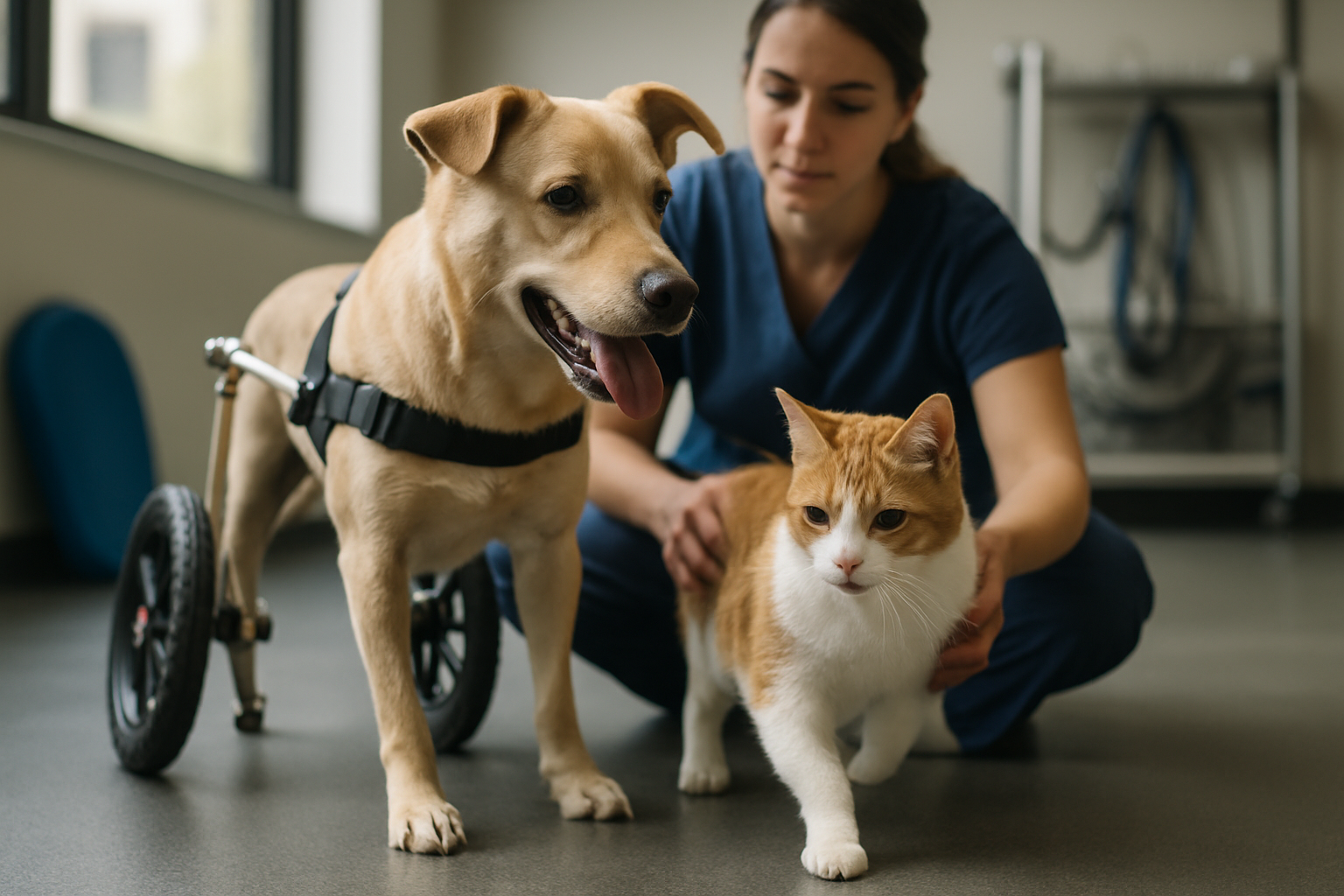Travel preparedness for companion health across climates
Traveling with a companion requires practical planning to keep their health steady across different climates. This article outlines essential steps—from nutrition and hydration to vaccinations, parasite prevention, grooming, and behavior—so caregivers can anticipate common risks and maintain wellbeing during trips.

Traveling with a companion animal brings extra responsibilities, especially when moving between climates. Different temperatures, humidity levels, altitudes, and local disease risks can affect appetite, hydration, skin and coat condition, and behavior. Thoughtful preparation reduces stress and health issues: pack appropriate food, identify local veterinary options, update preventive care, and adapt routines for exercise and enrichment. The following sections cover practical, evidence-based guidance for nutrition, hydration, parasite and vaccination checks, grooming and dental care, behavioral supports and enrichment, and travel logistics for seniors and animals with allergies.
How should nutrition adapt to different climates?
Dietary needs can shift when your companion moves from temperate to hot or cold environments. In heat, calorie requirements may dip slightly because animals expend less energy thermoregulating, but they still need nutrient-dense feeding and easily digestible proteins. In cold climates, some animals burn more calories to stay warm and may need slightly increased intake or higher-fat options, depending on body condition. Maintain consistent feeding schedules where possible and gradually transition food over several days if you must change brands or formulations. Monitor body weight and stool quality during travel and consult a veterinarian if appetite or digestion changes persist.
How to manage hydration and exercise while traveling?
Hydration is a primary concern across climates. In hot and humid areas, provide frequent access to fresh water and offer electrolytes formulated for animals only under veterinary guidance. For cold climates, ensure water sources remain unfrozen and use insulated bowls if necessary. Adjust exercise intensity: short, frequent walks in heat reduce overheating risk, while longer, active periods in cooler weather may be appropriate. Watch for early signs of overheating (excessive panting, drooling, weakness) or hypothermia (shivering, lethargy). Keep activity predictable during travel days to reduce stress and prevent injuries.
What parasite and vaccination checks are needed?
Different regions host different parasites and infectious diseases. Before travel, review parasite prevention for local threats such as ticks, fleas, heartworm, and intestinal parasites; prevention options include topical, oral, and collar products. Confirm vaccinations are current for region-specific risks and general core vaccines as advised by your veterinarian. Carry documentation of vaccination history and recent fecal test results if available. On arrival, inspect for ticks daily and treat promptly. If symptoms like vomiting, diarrhea, coughing, or lethargy develop after travel, seek veterinary evaluation and mention recent locations visited.
How do grooming, dental care, and allergies factor in?
Climate changes can exacerbate skin conditions and allergies. High humidity may increase the risk of hotspots and fungal infections; dry cold air can cause flaky skin and cracked paws. Maintain regular grooming to remove debris, check skin and ears, and keep coats appropriate for local conditions—trimmed for hot climates, fuller for cold climates unless advised otherwise. Dental health affects overall wellness; continue regular tooth brushing or professional care as recommended. If your companion has known allergies, pack hypoallergenic bedding and familiar shampoo, and keep a supply of any prescribed medications.
How to support behavior, enrichment, and senior needs?
Travel can trigger anxiety or disorientation, especially in older animals or those with cognitive decline. Preserve routines where possible—feeding, exercise, and rest times—and bring familiar items like toys, bedding, and scent-marked clothing. Provide enrichment through short training sessions, puzzle feeders, and supervised exploration to reduce stress. For seniors, account for mobility limitations: bring ramps, supportive bedding, and medication organizers. Monitor for subtle changes in behavior, mobility, or appetite and consult a veterinarian for adjustments in pain management, diet, or supplements.
What travel preparations help companion health?
Plan logistics: research local veterinary clinics, emergency hospitals, and any climate-specific risks at your destination. Prepare a travel kit with food, water, medications, first-aid supplies, grooming tools, and copies of medical records and vaccination certificates. Use secure carriers or harnesses for transport, and ensure carriers are ventilated and climate-appropriate. When crossing borders or regions, verify entry requirements, required vaccines, and quarantine rules in advance. Keep travel days calm by minimizing sudden schedule shifts and allowing gradual acclimation to new environments.
Traveling across climates demands attentive care and sensible adjustments to routine, diet, and preventive measures. By preparing hydration strategies, parasite and vaccination checks, grooming and dental care, behavioral supports, and logistics for seniors or allergic animals, caregivers can reduce risks and support companion wellbeing during trips. Regular communication with a veterinarian before and during travel helps tailor these steps to individual needs and local conditions.






